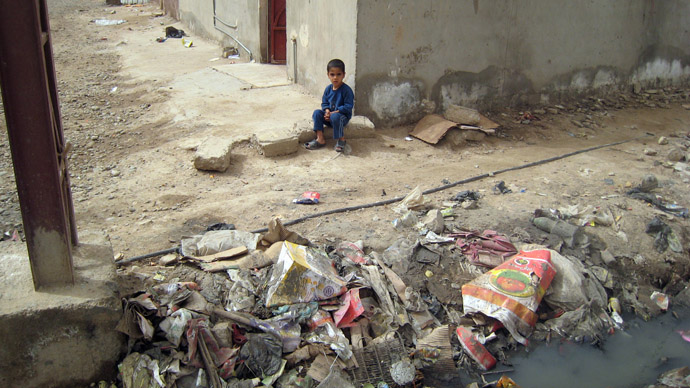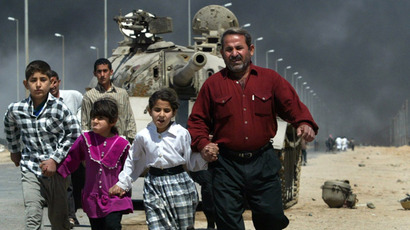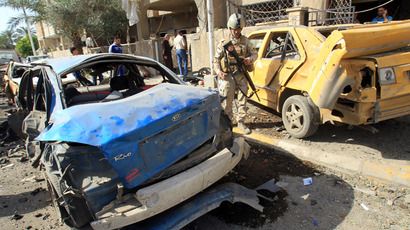Iraq in ruins: Post-war life overshadowed by crumbling infrastructure, corruption, poverty
Despite Iraq being rich in natural resources and the US pouring money into its economy for over a decade, Iraqi infrastructure is constantly failing and the people are forced to beg, as RT’s Lucy Kafanov reported from the war-torn country.
Read on Friday and Thursday bombings in Iraq
here
In spite of billions of dollars spent on reconstruction
following the decade-long conflict, many neighborhoods lack
sewerage systems and trash collection services. In some
settlements, there are barely any streets. Water is also a big
problem, locals pointed out.
“Nobody drinks the city water because we know it’s not clean.
Since the war, I’ve had to rely on bottled water. What comes out of
the tap is contaminated and makes us sick. How can we drink
it?” local resident Umm Muhammad indicated.
Central power is another issue, with the system sometimes on for as
little as two hours a day.
Electrician from Baghdad Abu Meria is sure the new government is to
blame for the chaos that reigning in his homeland.
“It's the citizens who suffer in the end, not the government.
The services are so bad and the power system has really
deteriorated. There were billions spent on fixing the grid but
there’s little to show for it.”

Abu Meria now earns four times more than before the war due to the frequent failures and blackouts all over the city.
As RT’s Lucy Kafanov also discovered, the crumbling infrastructure is closely entangled with rampant corruption.
Transparency International group has ranked Iraq as the eighth most-corrupt state in the world. In the latest scandal, the country’s Electricity Ministry was involved in a $1.7 billion fraud case.
On the backdrop of this, most Iraqis remain impoverished, struggling to make their ends meet. In the Al Tajiat landfill, on the outskirts of Baghdad, people are actually forced to live – without any proper living conditions.
“There are no schools for the kids here, no electricity, no real houses. To get a drink of water we have to travel 4km. It’s very difficult to live here.” Watch RT’s Lucy Kafanov’s full report.















